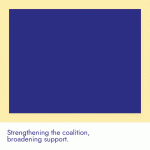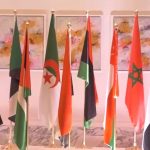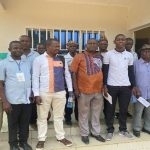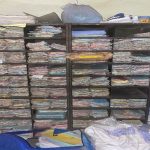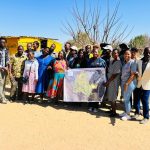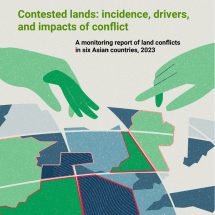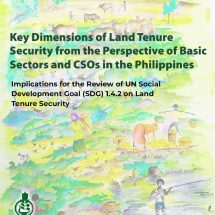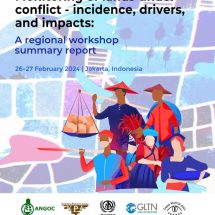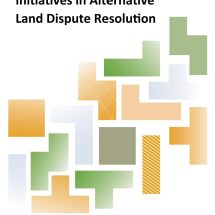 The International Land Coalition is a global alliance of civil society and intergovernmental organisations working together to promote secure and equitable access to and control over land for poor women and men through advocacy, dialogue and capacity building. Indigenous peoples comprise more than 370 million people worldwide. It is estimated that they constitute approximately 5% of the world’s population, but make up 15 % of the world’s poor and about one-third of the world’s 900 million extremely poor rural people. Indigenous peoples have strong spiritual, cultural, social and economic relationship with their traditional lands, but their land rights are often the most precarious. Hence, indigenous peoples’ issues are of central importance for ILC’s mandate.
The International Land Coalition is a global alliance of civil society and intergovernmental organisations working together to promote secure and equitable access to and control over land for poor women and men through advocacy, dialogue and capacity building. Indigenous peoples comprise more than 370 million people worldwide. It is estimated that they constitute approximately 5% of the world’s population, but make up 15 % of the world’s poor and about one-third of the world’s 900 million extremely poor rural people. Indigenous peoples have strong spiritual, cultural, social and economic relationship with their traditional lands, but their land rights are often the most precarious. Hence, indigenous peoples’ issues are of central importance for ILC’s mandate.
ILC’s main goal in its Strategic Framework 2011-2015 is “to enable poor rural women and men to gain secure and equitable access to and control over land in order to increase their food security and overcome poverty and vulnerability”. Indigenous peoples are mentioned significantly in ILC’s Strategic Framework, but the Coalition has not yet identified indigenous peoples as a specific category of collective rights-holders and has not applied a systematic focus on indigenous issues.
On April 27 2013, ILC’s members committed themselves through the Antigua Declaration at the close of the Global Land Forum and 27th Assembly of Members. In this document, ILC members voice their concern at the extreme vulnerability of numerous indigenous peoples to land grabbing and the criminalisation of customary forms of land and natural resource use, particularly in relation to extractive industries, conservation areas and commercial agriculture. Recognising that respect for indigenous cultures contributes to sustainable and equitable development and management of the environment, ILC members committed “to work together to more effectively support indigenous peoples in their struggle for territorial rights and the protection of their environments”.
A list of 10 People-Centred Land Governance commitments to action, based on the Voluntary Guidelines on the Responsible Governance of Tenure of Land, Fisheries and Forests in the Context of National Food Security (VGGT) and in the Framework and Guidelines on Land Policy in Africa (ALPFG)- was annexed to the Antigua Declaration. One of these actions is oriented to “respect and protect the inherent land and territorial rights of indigenous peoples, as set out in ILO Convention 169 and the UN Declaration on the Rights of Indigenous Peoples, including by recognizing that respect for indigenous knowledge and cultures contributes to sustainable and equitable development and proper management of the environment”.
During the 2013 Assembly of Members, ILC membership expanded to include several prestigious organisations that specifically represent indigenous peoples or have expertise on indigenous affairs, such as the Asian Indigenous Peoples’ Pact (AIPP), the International Workgroup on Indigenous Affairs (IWGIA) and the Ogiek Peoples’ Development Program.
Additionally, a survey to map ILC members’ involvement, experiences and interest in indigenous peoples’ land rights was undertaken between February and March 2013 in an effort to identify the main areas of relevance for ILC’s work. Forty-two members responded, constituting approximately 37% of ILC’s membership. Although it can be assumed that these respondents represent those members most immediately interested in indigenous issues, the survey confirms than an overwhelming percentage of respondents are currently working on issues pertaining to indigenous peoples’ rights to land, territories and resources; 88% are currently working on issues connected to indigenous peoples’ rights to land, territories or resources, 90% consider that ILC should have a more explicit focus on this matter, and 83% are interested in participating in an ILC’s thematic group on indigenous peoples.
Download in English, French and Spanish

